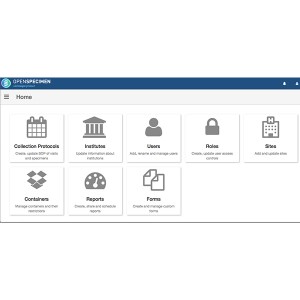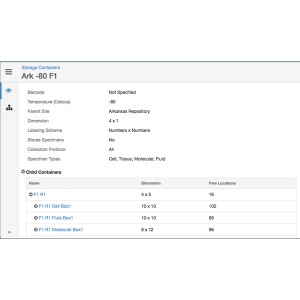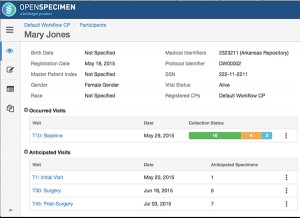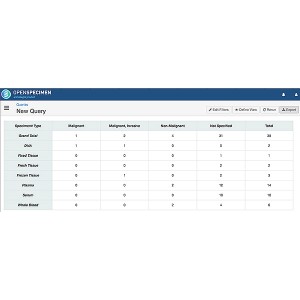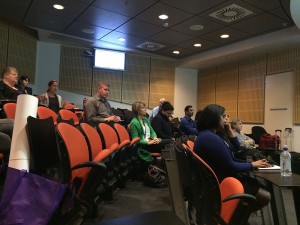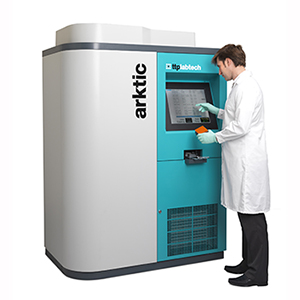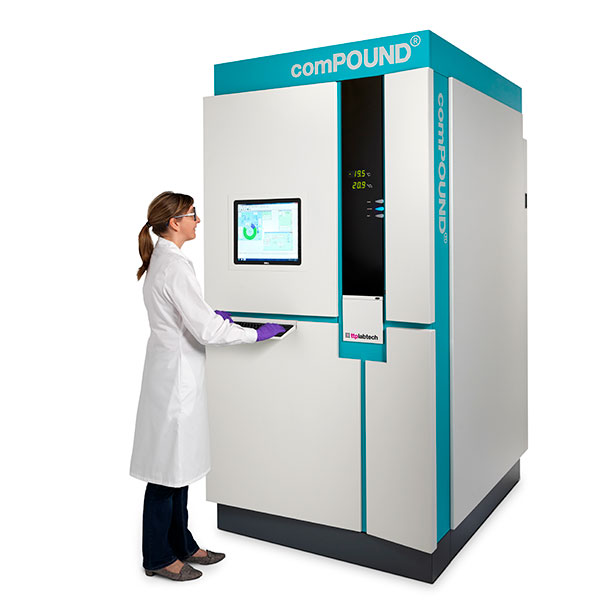OpenSpecimen – Biobanking Software
Overview
OpenSpecimen is a revolutionary biobanking informatics software solution. It is a complete solution for biospecimen tracking from collection to utilisation.
OpenSpecimen will improve the efficiency of your workflow, streamlining the management of biospecimens across collection, consent, QC, request and distribution. Implementing OpenSpecimen enables you to generate the maximum value from your biospecimens.
Developed by Krishagni Solutions and formerly known as caTissue Plus, OpenSpecimen is an open source software package that is free to download and use.
Flexibility and Customisation
OpenSpecimen is highly configurable and customisable and therefore easily tailored to suit your specific application and requirements.
It has been designed to be configured and customised by non-IT professionals. Operations such as adding new custom fields or forms can be easily performed in just a few minutes.
Product Support
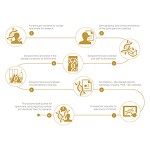 While OpenSpecimen is open source, the developers Krishagni Solutions not only develop newer versions, but also provide professional support to get up and running as well as to ensure your system is meeting your expectations.
While OpenSpecimen is open source, the developers Krishagni Solutions not only develop newer versions, but also provide professional support to get up and running as well as to ensure your system is meeting your expectations.
Krishagni developers are available via phone/email to provide assistance with such things as:
- Data migration
- System customisation
- System integration
- Training
- And more
Usage
OpenSpecimen is currently employed by leading institutions of all sizes around the world where it is used to manage, track and catalogue biospecimen data. Click here for a list of clients.
Key Features
Key features of OpenSpecimen include:
- Role-Based Access Different levels of user access based on their roles
- Multi-Site Support Access records from multiple repositories using a single installation of OpenSpecimen
- Storage Containers A configurable container structure makes it easy to create a flexible and hierarchical file structure for maintaining records
- Protocol Management Control biospecimen collection using a collection protocol and use this data to plan workflows and improve efficiency
- Rapid Data Entry User-friendly interface aids data entry
- Annotations – OpenSpecimenallows data capture by default for clinical annotations (e.g. environmental, follow-up, lab tests) and pathology for basic cancer types. Specimens can be annotated with College of American Pathologists (CAP) checklist-based data forms or by import, de-identification, and concept coding of pathology report text using caTIES-like functionality.
- Bulk Data Upload Legacy data stored in formats like Excel can be uploaded via CSV (comma separated variable) file formats.
- Data Retrieval and Reporting Multiple retrieval methods (e.g. Google-like keyword searches and simple/advanced searches) make data retrieval simple. Results are filtered by user level access ensuring patient privacy is maintained. In addition custom reports can be produced in a range of formats such as CSV, PDF etc. They can also be produces to a schedule e.g. weekly, monthly etc.
- Shipping and Tracking This features automates the processes of sending, requesting and receiving specimens between onsite and offsite locations.
- Requests and Orders Supports the complete workflow. Researchers can search for the biospecimen of interest, add to cart and request for distribution
- Programmatic Access (API) – Through the API, OpenSpecimen can be integrated with other systems to allowing them to read and write data, whilst ensuring authentication, authorisation and data validation
- Free and Open Access Source Code The source code is freely available for download with no licence fees.
Installations
As OpenSpecimen is an open source software package, there are potentially many users around the world. Provided below are a list of some of the known users:
Australia
- Victorian Cancer Biobank
- University of New South Wales
- St Vincents Hospital
- University of Melbourne
- University of Auckland
- South Australian Institute of Health and Medical Research
- Murdoch Childrens Research Institute
- University of Newcastle
Rest of the World
- John Hopkins University, Division of Gastroenterology and Haematology USA
- Edwards Comprehensive Cancer Center USA
- University of Michigan USA
- Notre Dame University USA
- University of Missouri USA
- Thomas Jefferson University (Kimmel Cancer Center) USA
- University of Nebraska USA
- University of Texas Medical Branch at Galveston USA
- Washington University USA
- University of Texas Southwestern Medical Center USA
- Baylor Medical College – USA
- Leicester Cardiovascular Biomedical Research Unit, University of Leicester UK
- Singapore General Hospital Singapore
- SMBD Jewish General Hospital Canada
- University Health Network Canada
- King Hussein Cancer Center Jordan
- National Cancer Institute Egypt
- Childrens Cancer Hospital Egypt
- Grigore T. Popa University of Medicine and Pharmacy Romania
- Muzumdar Shaw Cancer Center India
- Karolinska Institute / BBMRI – Sweden
- Navarra Biomed – Spain

2015 OpenSpecimen User Group Meeting
In October, AXT attended the Australian Biospecimen Network Association (ABNA) Conference at Coogee Beach in Sydney (October 26-27). It was a great meeting, with many interesting talks and posters and lots of interaction with exhibitors.
AXT were there representing Krishagni Solutions and TTP Labtech, who offer software and hardware solutions respectively, for biospecimen storage. OpenSpecimen bioinformatics platform from Krishagni Solutions has a solid base in Australia with 5 institutes currently using it to track their specimens from collection through storage and then distribution to researchers. It was great to catch up with some of those people and also to meet a lot of new people interested in adopting the OpenSpecimen software.
Immediately following the conference on October 29, we held a focussed workshop for OpenSpecimen users and people looking to use the software in the future. We had attendees from most major Australian cities and New Zealand and it was great to work with such a highly interactive audience.
Poornima from Krishagni started off the day by giving everyone a good understanding of OpenSpecimen as it stands now and there was good discussion around the features of the system and how everyone uses each component. Nina from the Victorian Cancer Biobank gave a great talk about the path that the VCB have taken to implement OpenSpecimen as their sample tracking system. Ninas talk sparked spirited conversation amongst the group.
Towards the end, Poornima wrapped up by letting us all know about some exciting new features destined for OpenSpecimen and was able to take feedback from the group back to the development team relating to what features they would like to see in future upgrades to the software.
We are grateful to Anusha Hettiaratchi and The Lowy Biorepository at UNSW for hosting the day and providing everyone with a tour of the facilities. Thanks to everyone who participated, with extra thanks to our two main speakers Poornima Govindrao from Krishagni Solutions and Nina Paleracio from the Victorian Cancer Biobank. We look forward to seeing you at our next event.
OpenSpecimen at Johns Hopkins’
Johns Hopkins is America’s first research university and Johns Hopkins Medicine is an $8b integrated global health enterprise and one of the leading health care systems in the USA. They use OpenSpecimen to manage their biobank which supports a variety of specimen collection workflows and study teams e.g. pathology database and EPIC (Early Psychosis Intervention Clinic).
Key features that attracted Johns Hopkins’ to adopt OpenSpecimen include:
- Annotation of research and clinical data
- Interfaces with clinical and research systems
- Query capability
- Open Source with strong user community
- Security
- Specimen and Derivative Tracking
They adopted OpenSpecimen in 2015 after a long history with caTissue. Following their initial integration of OpenSpecimen v1.0, they upgraded to v2.5 in early 2016 and are currently (December 2016) upgrading to v3.3.

